If you’re thinking about living on the road full-time in your RV, planning for costs is really important. It can feel a little overwhelming at first because every budget looks a bit different, and there are a lot of moving parts.
I’ve spent time breaking down the real-life expenses you might run into, plus a handful of tips that actually help keep spending under control. This guide will give a detailed look at how much to budget, what kinds of expenses to expect, and a few strategies that make full-time RVing both fun and affordable.
Big Picture: What Does Full-Time RVing Really Cost?
The cost of RV living stretches across a pretty wide range. Some folks spend under $2,000 every month, while others dish out more than $5,000. Your costs will depend on your travel pace, your RV setup, and the type of campsites or parks you pick.
One couple might boondock for free in the desert most of the year, while another prefers full hookups at RV resorts. Seasonal travel can also change fuel and camping rates, so always keep that in mind when making your plan.
The main categories I break things down into are:
- RV payments or depreciation
- Camping fees
- Fuel and maintenance
- Utilities and internet
- Groceries and eating out
- Insurance and health care
- Entertainment and fun
- Miscellaneous costs
Your biggest expenses usually end up being campsite fees, gas, and food. Try to estimate higher at first, and work down from there as you figure out your routine.
Types of Full-Time RVers and How That Impacts the Budget
The amount you spend can really change depending on how you travel and where you like to stay. Some RVers prefer to chase nice weather, hopping from one state to the next. Others often stay parked in one area for a month or longer to save cash. There isn’t one right way, so figuring out which style fits your vibe helps set a realistic budget.
- Slow travelers usually pay less for fuel and can snag monthly campsite discounts.
- Fast movers spend more on gas and usually pay nightly camping rates.
- Boondockers avoid camping fees entirely by staying on public land, but they might pay more for solar setups, generators, water, and dump station visits.
- Luxury park lovers pay a premium for resort-style amenities but get more comfort and convenience.
Every style is totally valid. Your preferences will guide what areas to focus on when setting up your monthly budget, and your preferred adventure style can make a big difference in your finances.
Monthly RV Living Budget Breakdown
This is where I get into the nitty-gritty. Here’s a sample breakdown using ballpark numbers to help visualize what you might expect, but keep in mind your mileage may vary:
- RV Payment: $0 if paid off; $250–$700 monthly if financed
- Campsite Fees: $300–$1200 monthly, depending on location, time of year, and membership discounts. We use this source to save 50%!
- Fuel: $150–$600 (varies with distance, RV type, fuel prices)
- Maintenance & Repairs: $50–$275 (set aside monthly to budget for emergencies)
- RV Insurance: $60–$180 per month
- Health Insurance: $150–$750 per month (family plans run higher; shop for the best fit)
- Groceries: $600–$900 per month (about the same as most people spend at home)
- Dining Out: $60–$250 per month (depends on how often you eat out while exploring)
- Internet & Utilities: $80–$300 per month (cell plans, WiFi, and occasional propane or generator fuel)
- Entertainment & Attractions: $50–$300 per month (entry fees, tours, and local events)
- Miscellaneous: $100–$250 per month (laundry, mail forwarding, pet expenses, etc.)
Some categories are easy to adjust as you get into the rhythm. I usually recommend tracking your actual spending for a few months so you can adjust your numbers to fit your reality and avoid surprises down the line.
Extra Costs and Hidden Expenses Worth Planning For
Certain costs catch a lot of new RVers off guard because they pop up out of nowhere, or they’re just easy to forget. Here’s a list of the ones I’ve noticed can sneak up on people:
- RV repairs after a breakdown or small accidents
- Tire replacements and wheel alignments
- Annual registration, taxes, and inspection fees
- Propane refills for cooking and heating
- Storage units for belongings left behind
- Laundry (either laundromats or camping facilities)
- RV gear upgrades, like a new mattress, solar panels, or towing accessories
I find it helpful to set aside a little “just in case” fund for unexpected repairs or medical expenses. Sometimes, things break at the worst possible times, and having a cushion means less stress when that happens.
How to Save Money as a Full-Time RVer
Budgeting is key, but there are some tried and true ways to trim monthly RV living costs without sacrificing comfort. Here are several ideas that make a difference for most people I know who do this full time:
- Use campground memberships like Thousand Trails or Passport America for discounted rates
- Mix up your stays with free nights on public land (BLM, national forests, etc.)
- Take advantage of monthly or weekly rates over nightly charges at parks
- Travel more slowly to cut back on fuel costs
- Shop local farmers’ markets and small town grocers for better deals
- Cook most meals in the RV to save on eating out
- Follow fuel price apps for the cheapest fillups nearby. The Open Roads program saves thirty cents to over a dollar a gallon on diesel in some states, but mostly around thirty to fifty cents per gallon.
- Keep up regular RV maintenance so little problems don’t turn into larger, expensive repairs
Getting creative about finding free or cheap places to explore can also make full-time RVing more rewarding. National forests, public lakes, and small towns often have less expensive options than busy tourist spots. You could stumble upon some real hidden gems while saving money.
Budget Tips For First-Time Full-Time RVers
Making your budget work on the road means a little flexibility and being able to adjust as you go. Here are a few approaches that I always recommend to people getting started:
- Establish a baseline budget before you hit the road and adjust as you discover your unique routine. Tracking expenses for the first three months helps spot trends and surprise costs fast.
- Plan for the unexpected by keeping a small emergency fund on hand. This covers repairs, short-notice campground fees, or a motel night if your RV needs servicing.
- Shop around for insurance and memberships every year to make sure you are getting a good deal. Policies and programs change all the time, so checking in yearly can save you hundreds.
- Choose the right RV by thinking about what you really want versus what you’ll actually use. Bigger isn’t always better. Sometimes, a smaller RV means lower registration fees, better gas mileage, and fewer campsite restrictions.
- Go digital with expense tracking apps, and you can easily check your spending even if you’re off-grid for weeks.
I’ve found that being honest about wants and needs can really help balance fun and finance. Some months are more expensive thanks to travel or splurge experiences, but you can usually even things out the next month by slowing down and spending less. Remember, flexibility is your friend, and it’s smart to stay open to switching things up as you go.
Do yourself a favor and don’t hit the road with minimal funds and no plan! You can work camp to help stretch the budget, but you can’t always count on those jobs being available where you want to go. Everyone dreams of work camping in Florida during the winter. Those jobs will be few and far between because all the same people keep coming back year after year.
FAQ: Full-Time RVing Costs and Budgeting
Here are answers to some of the most common questions people have about budgeting for full-time RV living:
How much money do I need to start RVing full-time?
That depends on your RV choice and your travel style. Some start for as little as $10,000 if buying an older used RV and keeping costs low. Others spend much more for newer rigs and luxury parks.
Is it cheaper to RV full-time than own a home?
It truly depends on your lifestyle and location, but many people find RV costs are similar to or slightly less than owning a stick-and-brick home. The big advantage is flexibility; you can always adjust your travel or campground choices to manage spending. For our RV lifestyle, we find the full time RV life is more expensive than living in a home.
Should I buy new or used for my first RV?
Used RVs are often easier on the wallet and let you try out the lifestyle without a big investment. Just check for hidden issues before buying, and budget for repairs as needed. Be sure to have a certified RV tech look over any used RV you may decide to purchase.
How do people get mail and packages on the road?
Most full-timers use mail forwarding services, RV parks, or post offices that offer general delivery. Amazon lockers and similar delivery services are also helpful in bigger towns.
Can I work and make money while RVing?
Yes. Many folks work remotely, freelance, or pick up seasonal jobs along the way. Reliable internet is key, so budget extra for cellular plans or satellite service if you need to stay connected.
Final Thoughts: Balancing Adventure and Budget on the Road
Full-time RV life is one big adventure, but keeping an eye on your budget will make it a lot more fun and way less stressful. Track spending, plan ahead for the curveballs, and focus on the aspects of travel that matter most to you.
Whether you’re into free exploring or fancy RV resorts, a flexible approach to budgeting makes the lifestyle sustainable over the long term. Don’t hesitate to mix in some variety with your travel plans, and celebrate the savings every time you stumble upon a great campsite or special local event.
Curious about how to stay connected on the road? Check out more about RV internet solutions here.
I love helping other RVers find freedom and confidence on the road. If there’s something you’re passionate about, building an online income from your RV is totally doable. I can point you to resources and share some of my own experience chasing WiFi from one quirky campground to the next!
Want to chat, ask a question, or share your RV story? Feel free to drop a comment, and happy travels wherever the road might take you.
To learn more about us, click here.
Please feel free to ask a question or leave a comment before you read other articles on our website.
Pam and I hope that while you enjoy the RV lifestyle, you also run an online business from your RV! We have since 2014!!
With great RV connectivity, as discussed on this website, you can make money while traveling to whatever destination you desire.
Would you like to create an income while enjoying RV travel?
Is there something that you are passionate about? You can create an online business that you can run anywhere. I can help you do that!

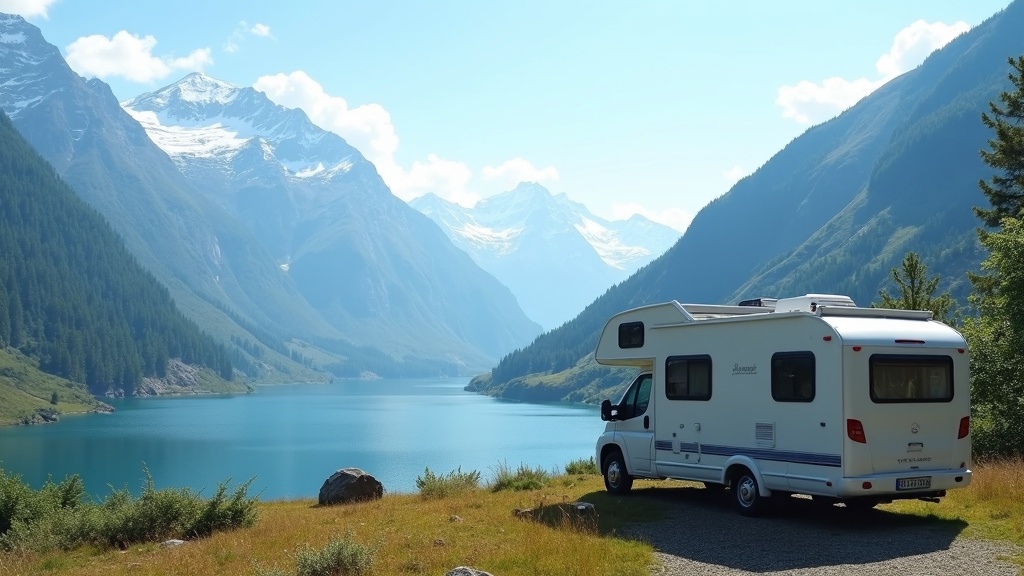
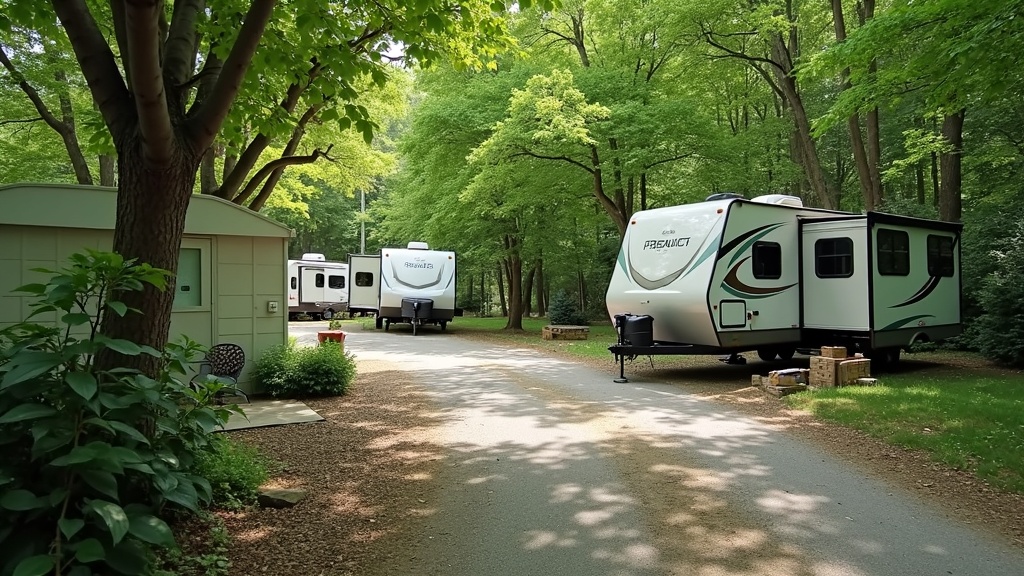
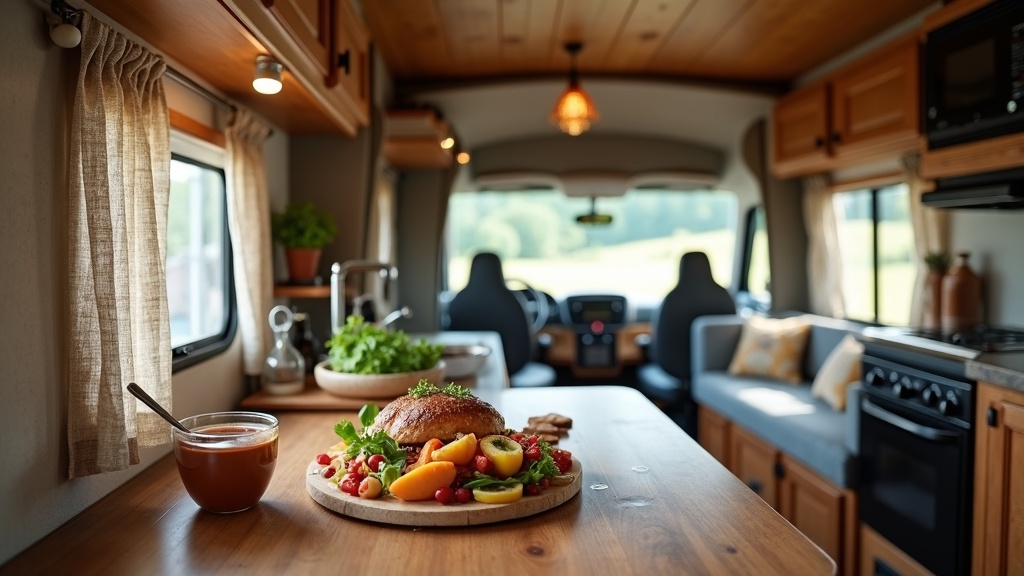
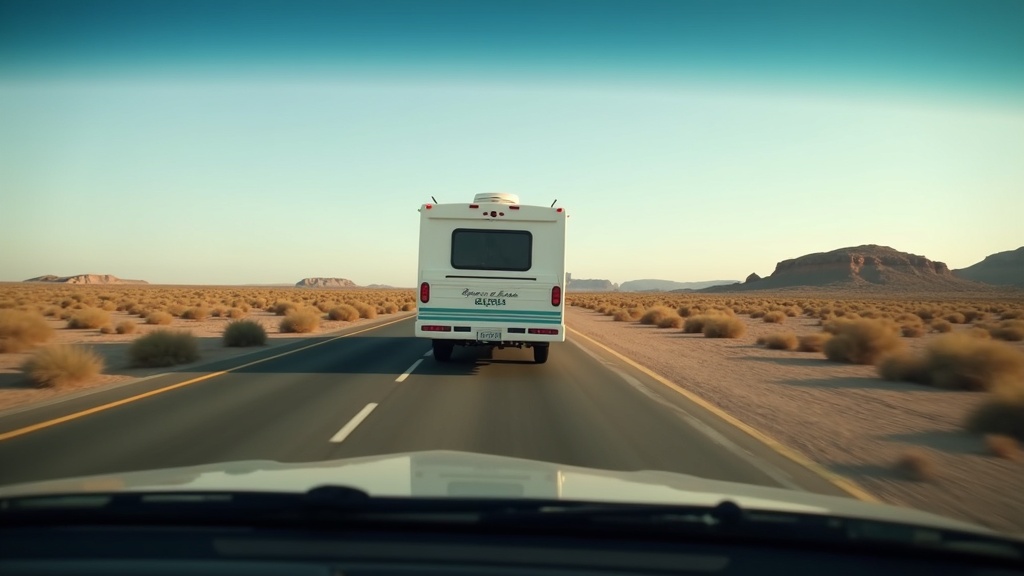
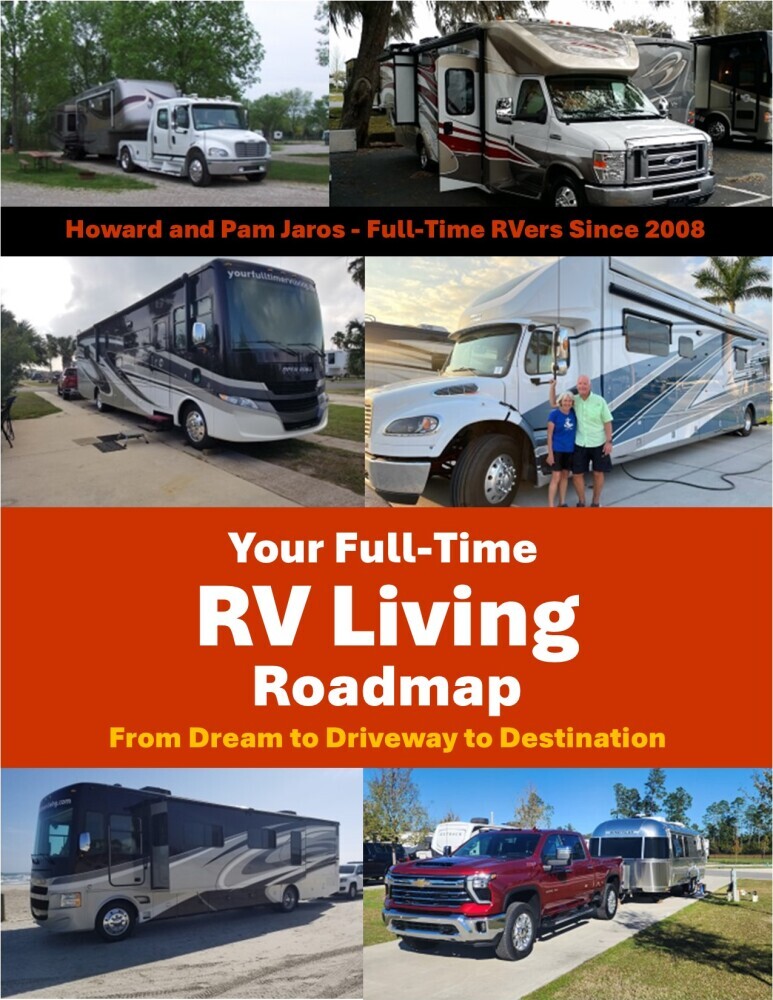

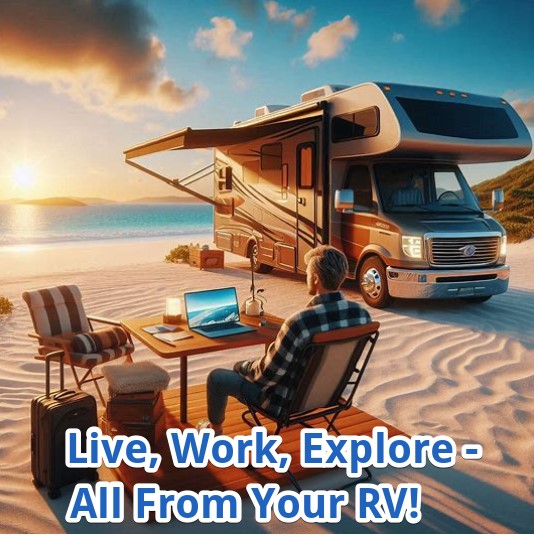
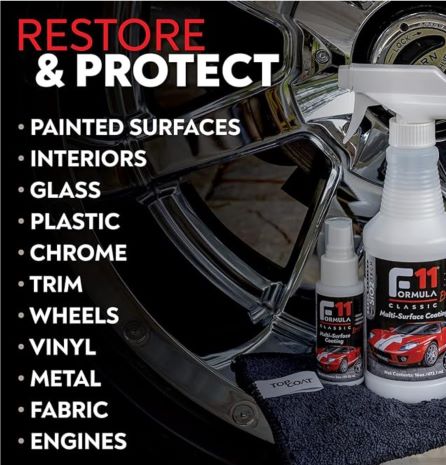
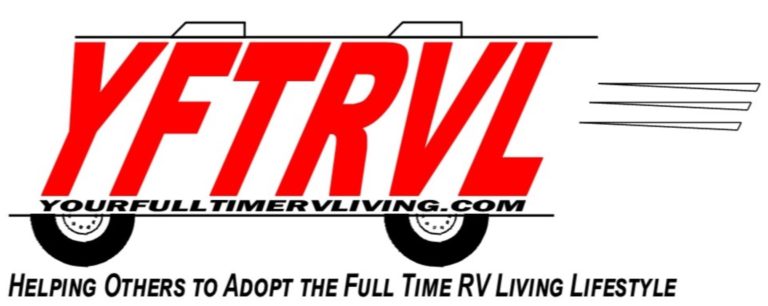



Recent Comments